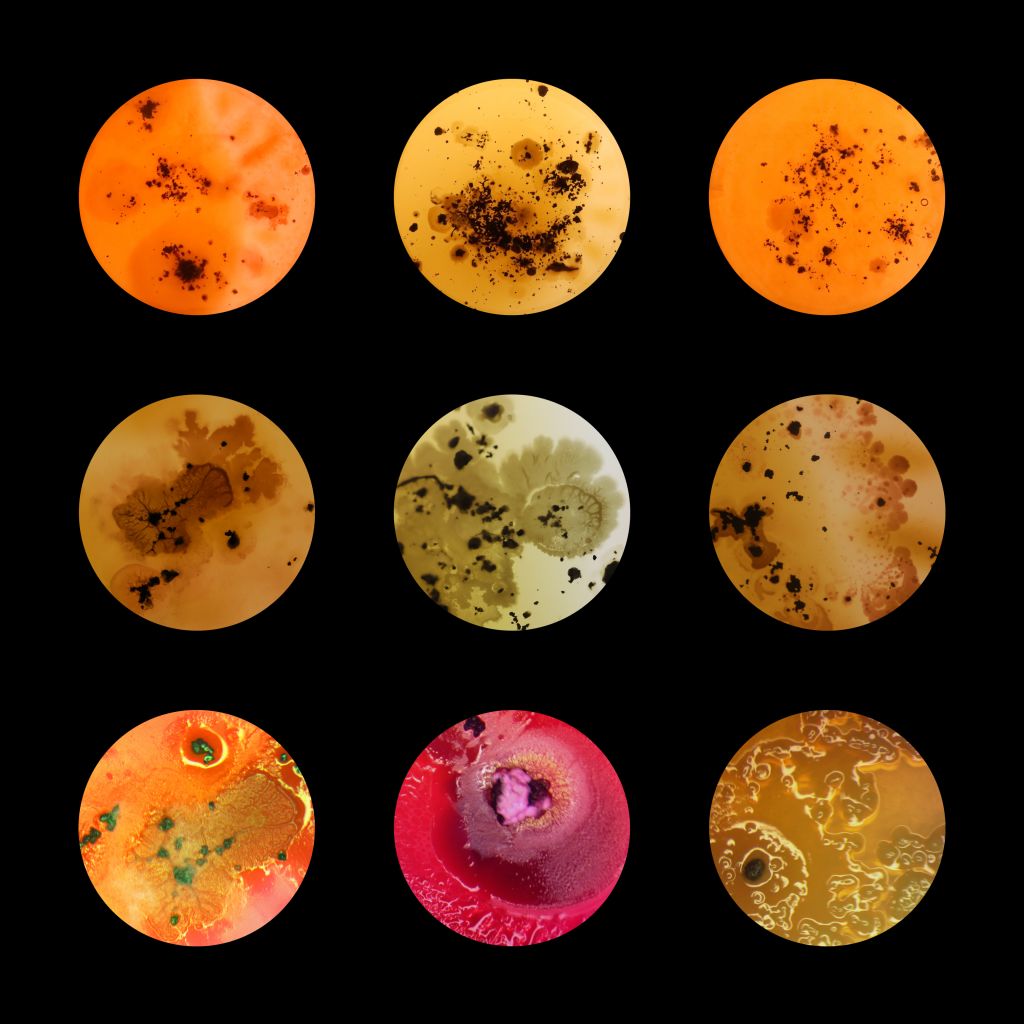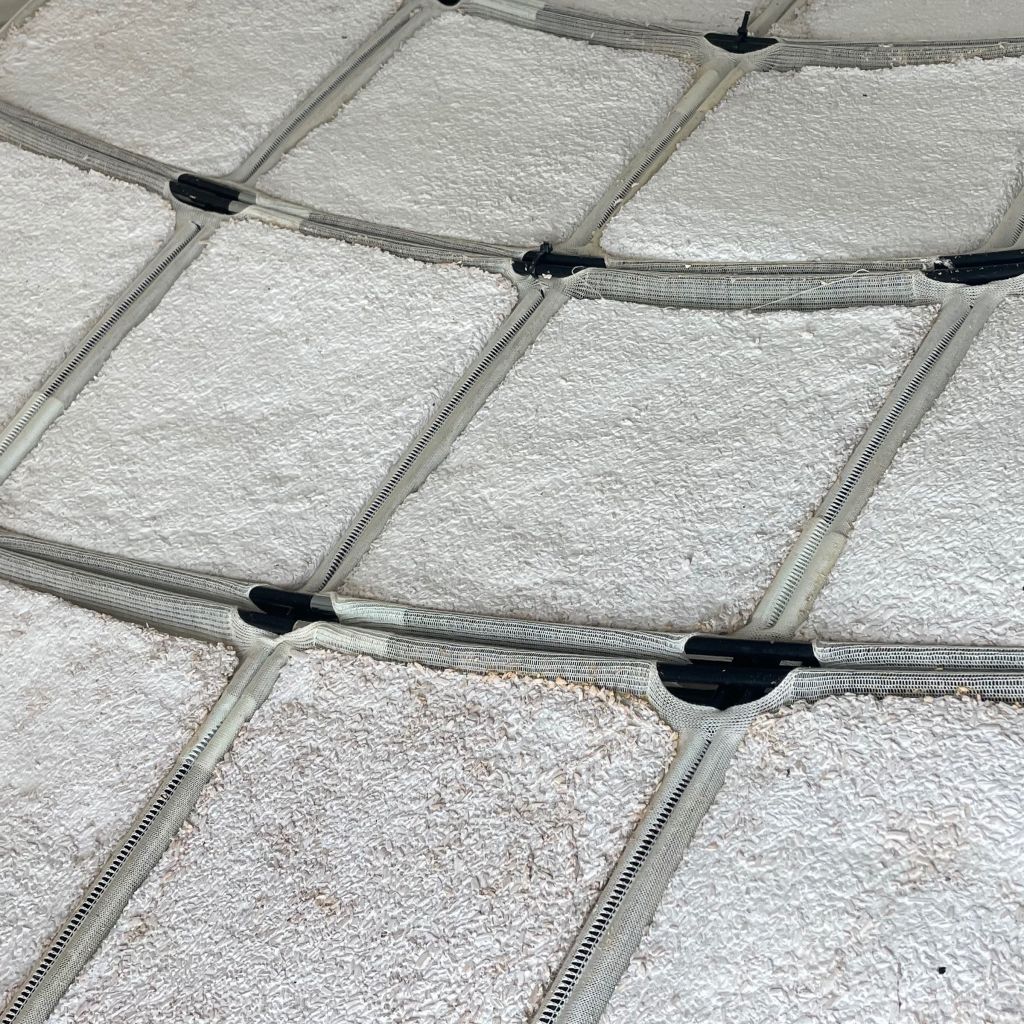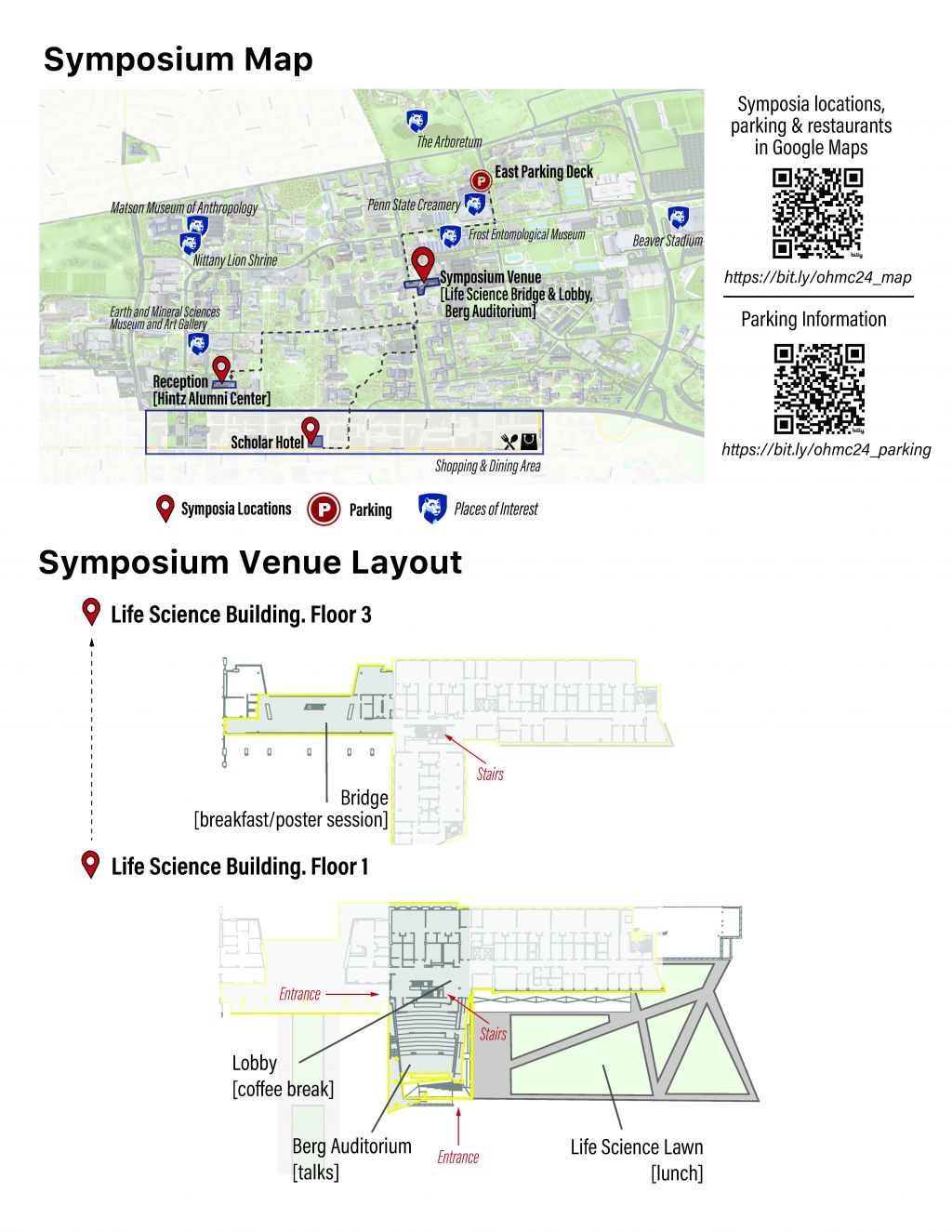
The One Health Microbiome Symposium is the second biennial symposium hosted by the One Health Microbiome Center, one of the largest and most active interdisciplinary microbiome centers. Join us May 30-31, 2024 at the University Park Campus of The Pennsylvania State University.
Registration and abstract submission portals are closed.
About the Symposium
The symposium will feature internationally-renowned keynote speakers, faculty and trainee research talks, poster sessions, and networking events. The goal of the One Health Microbiome Symposium is to showcase how diverse ecosystems are dependent upon their microbial communities and how microbes flow through these ecosystems to shape the outcomes of health and disease. The biennial event creates an ongoing, supportive, diverse, and intimate environment for microbiome researchers at all career stages to connect.
Download the Symposium schedule and Abstract Book.
Thursday, May 30, 2024 - Day 1
- Registration & Breakfast (provided)
- Poster Session #1
- Opening Remarks
- Session 1: Integrated One Health
- Lunch (provided)
- Session 2: Agricultural Health
- Session 3: Environmental Health
- Reception
Friday, May 31, 2024 - Day 2
- Breakfast (provided)
- Poster Session #2
- Session 4: Human Health and Disease
- Lunch (provided)
- Session 5: Tools and Technologies
- Awards and closing remarks
Keynote Speakers

Talk Title: "From Bog to Bedside: The Story Behind the first Dedicated Phage Therapy Program in the United States."
Steffanie Strathdee is an infectious disease epidemiologist who is Associate Dean of Global Health Sciences and Harold Simon Distinguished Professor of Medicine at the University of California San Diego where she now co-directs the Center for Innovative Phage Applications and Therapeutics (IPATH). In 2016, Strathdee and colleagues were credited with saving her husband’s life from a deadly superbug infection using bacteriophages –viruses that attack bacteria. The case, which involved cooperation from three universities, the U.S. Navy and researchers across the globe, shows how phage therapy has potential to treat multi-drug resistant bacterial infections which are expected to kill 10 million people per year by 2050. Strathdee and her husband co-authored their memoir called The Perfect Predator: A Scientist’s Race to Save Her Husband from a Deadly Superbug. For her efforts to revitalize phage therapy in the West, she was named one of TIME magazine’s Most Influential People in Health Care in 2018.
Talk Title: “Reductionist approaches to determine functions of the plant root microbiota”
Paul Schulze-Lefert is director of the Department of Plant-Microbe Interactions at the Max Planck Institute for Plant Breeding Research in Cologne, Germany, and Honorary Professor at the University of Cologne, Germany. Previously, he held senior positions at the University of Aachen, Germany, and at the Sainsbury Laboratory of the John Innes Centre, Norwich, UK. His research focuses on the plant innate immune system and the plant microbiota. In recent years, his laboratory has contributed to the development of plant microbiota science as a new field of research. His main goal is to define the molecular principles underlying plant-associated microbial communities and their beneficial services to the host using reductionist approaches.
Paul is an elected EMBO member since April 2006, a Foreign Associate of the National Academy of Sciences, USA, since 2010, a member of the German National Academy of Sciences, Leopoldina since 2010, a member of the American Academy of Microbiology, USA, since 2011 and a member of the International Scientific Advisory Board of the Chinese Academy of Sciences, since 2021.
Talk Title: "The Microbiome in the Novacene"
Professor Maria Gloria Dominguez-Bello, PhD, is the Henry Rutgers Professor of Microbiome and Health at Rutgers University in New Brunswick, where she is affiliated with the Departments of Biochemistry and Microbiology, and of Anthropology. She is a Fellow of the American Academy of Microbiology and of the Infectious Disease Society of America (IDSA), as well as a member of the Editorial Board and reviewer at several scientific journals. Her work focuses on understanding human health before urbanization, and the impact of urban practices that impair the microbiome, as well as strategies for restoration. She is a founding member of the Microbiota Vault, a global initiative to preserve the diversity of the microbes relevant to human health, and to educate and to foster collaborative research with the global South to create microbiota collections in hotspots of biodiversity.
Talk Title: "Windows to the Underground - Live Broadcast from the World of Soil Microbes"
Edith Hammer is a Senior Lecturer/Associate Professor in Soil Microbial Ecology. Her research focuses on microbial processes that drive the nutrient cycles in soils and are the base for healthy soil functions, such as its enormous carbon storage. She has developed so-called soil chips, microfluidic micromodels that mimic soil microstructure to study organisms and processes embedded in their spatial settings. She has a strong interest in processes at the scale of the microbes themselves, and with help of imaging she also wishes to increase awareness of the fragile ecosystem with its intricate biodiversity. She leads the branch for climate and C-cycle science of the strategic research environment BECC, the Section Soil Biology at the European Geosciences Union, and 2023’s Microsoil Network.
Synergies in Art and Science
Download the brochure here.
"Synergies in Art and Science," is an art exhibition showcasing thought-provoking collaborations at the intersection of microbial science and artistic innovation. This exhibit is open for viewing throughout the Symposium in the Life Science Building's ground-floor lobby.
This exhibition was facilitated, in part, by the Arts and Design Research Incubator and the One Health Microbiome Center. Contents include highlights from the One Health Microbiome Center’s Biennial Symposium art exhibition, “Synergies in Art and Science”
Curated by Cynthia White, with special thanks to Nichole Ginnan, Cody Goddard, Dina Constantinides, the Arts and Design Research Incubator, College of Arts and Architecture, One Health Microbiome Executive Committee.



Travel Tips
The Symposium's main venue is the Life Sciences Building, with a reception at the Hintz Alumni Center in the evening on May 30th.
Paid parking is available at the East Parking Deck on campus.
Commonly, travelers opt to fly into University Park Airport (SCE) in State College. This airport directly connects to Chicago O'hare (ORD), Philadelphia International (PHL), and Newark Liberty (EWR).
Airports such as Harrisburg International (MDT), Pittsburgh International (PIT), and Baltimore-Washington International (BWI) are located 1-4 hours from State College by car.
- Explore the natural beauty of Central Pennsylvania through many nearby hiking trails.
- Visit one of Penn State's museums, such as the Frost Entomological Museum, the Matson Museum of Anthropology, and the Earth and Mineral Science Museum & Art Gallery.
- Catch a local concert or movie screening at The State Theatre.
- Visit the Berkey Creamery.
- Drive to visit big cities such as Philadelphia and Pittsburgh.
Symposium Sponsors

Want to become a sponsor? Contact Dr. Nichole Ginnan at nginnan@psu.edu.